
Fashion alone does not determine the color of your ski goggle lenses. The lenses must help you make out changes in terrain, see better in low light and avoid the glare from the snowy expanse of the mountain. All About Vision recommends yellow-tinted ski goggles. The yellow tint will help filter the different wavelengths of light to improve your visibility.
Visible Light Transmission
The yellow tint affects how much visible blue light is allowed through your ski goggle lenses. The visible light transmission for yellow goggles is 68 percent, according to REI.com. In comparison, dark brown lenses only allow 10 to 18 percent of visible light in. Because the yellow lenses transmit more light than their darker counterparts, they allow sufficient visibility to see on overcast or foggy days, yet filter some of the brightness reflected off the snow.
Blue Light
Blue light is a concern for skiers, because blue light rays scatter easily, creating a light that reflects back at the eyes. This glare makes it difficult to see what is ahead of you, limiting your vision. Yellow is the neutralizing color for blue light, so yellow lenses neutralize blue light and prevent glare. As a result, your vision improves because you do not have the sun’s rays bouncing off the snow and reflecting toward your eyes.
Macular Degeneration
Wearing yellow goggles to improve visibility not only helps frequent skiers see better while skiing, it also can help them see better long-term. This is because overexposure to blue light is associated with macular degeneration, a condition that damages the retina. The retinas help the eyes focus to see fine details. Macular degeneration causes blurry vision. By protecting yourself against blue light when you ski, you reduce your risk of macular degeneration.
Warning
While yellow-colored ski goggles can be beneficial for reducing blue light, this does not mean they are ideal for all skiing situations. If you are skiing in extremely bright light, a darker lens may be preferable to filter out visible light transmissions. Darker conditions may necessitate a lighter lens. If you are unsure of the best goggle color for the ski conditions, consult a professional at your ski shop or ski slope.
Related Articles
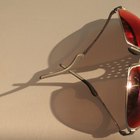
The Effects of Red Lens Sunglasses
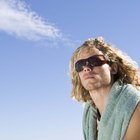
The Benefits of Yellow Lenses in ...

The Best Photochromic Sunglasses

Amber Vs. Grey Sunglasses
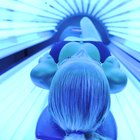
Tanning Beds and Eye Disorders

Levels of Polarized Sunglasses

The Best Sunglasses for Kayaking

What Color Clothes Makes Brown Eyes ...
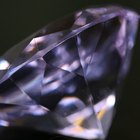
How to Tell If a Blue Diamond Is Real?

How Do Tanning Beds Affect Eyes?
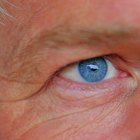
Do People With Blue Eyes Need to Wear ...

Nutrition: Fruit and Vegetable Colors

Polycarbonate Lenses Vs. Polarized
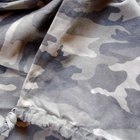
The Best Camouflage Color to Wear at ...

Sunbed Pros & Cons
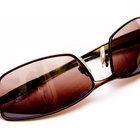
How to Spot Fake Serengeti Sunglasses

How to Troubleshoot a Citizen Skyhawk ...
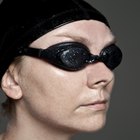
How to Wear Swimming Goggles

Can Shining a Flash Light in Eyes ...

How to Get a Good Tan on the Beach
References
Writer Bio
Rachel Nall began writing in 2003. She is a former managing editor for custom health publications, including physician journals. She has written for The Associated Press and "Jezebel," "Charleston," "Chatter" and "Reach" magazines. Nall is currently pursuing her Bachelor of Science in Nursing at the University of Tennessee.
Photo Credits
Jupiterimages/Brand X Pictures/Getty Images